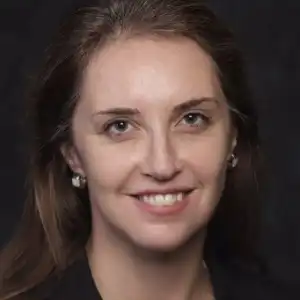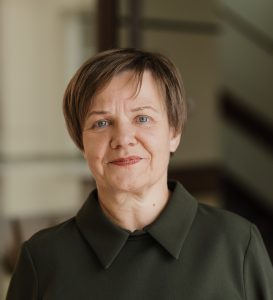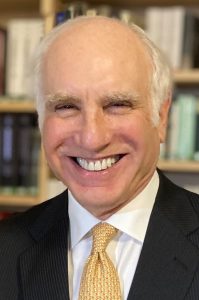Treating Personality Pathology in a Time of Change

Registration is open!
Dear colleagues and friends of the ESSPD,
The ESSPD recommends to include the perspective of persons with lived experience in the symposia. We are aware that there may be challenges for some individuals to participate in the ESSPD conference and we are working to address some of these challenges. For questions or specific support in this matter, contact us at info@esspd.eu.
Welcome to “Treating Personality Pathology in a Time of Change”
September 2024
Dear Colleagues and Friends,
It is my pleasure and honor to welcome you to the 7th congress of the European Society for the Study of Personality Disorders, in Antwerp (Belgium) on “Treating Personality Pathology in a Time of Change”.
Treatment of personality pathology has changed over the past generations of researchers and clinicians. Treatment contexts present challenges and opportunities due to evolving diagnostic classifications, emerging needs in specific populations – including youth and families –, constraints related to dissemination of good practice principles across the globe, the increased use of technology to treat clients, and the more active – and warmly welcomed – involvement of users and carers in the treatment. Change as context affects the treatment delivered to our clients, while change in context transforms the client’s presenting problem into unchartered territory of self-knowledge, nourishing interpersonal relationships and a new story of a lifetime.
ESSPD Antwerp 2024 is: Five plenary sessions, six CME courses, four semi-plenary sessions, seven awards for the best work in our field, over 50 research symposia, over 30 individual paper presentations, over 80 poster presentations: three days packed with knowledge on personality disorders!
The realization of this year’s ESSPD congress in Antwerp has been an endeavour which truly took a whole village over many months of preparation. I am honored to express my warmest gratitude to the “village”, at ESSPD and our loyal and dedicated partner at Universitair Psychiatrisch Centrum (UPC) Duffel, Ann Berens. Particular thanks goes to Jasper Delanoy at UPC Duffel, Brad Smith at meetingsavvy, the ESSPD secretary Nicola Harding, and the entire Social Media and Science Communications Committee of the ESSPD. I thank the ESSPD board and advisory board, the Antwerp 2024 Scientific Committee, the Antwerp Congress Organizing Committee, the Antwerp Bluepoint and all partners and services who work together to welcome you all under excellent conditions. I express my special gratitude to our 30 ESSPD Antwerp 2024 volunteers who have put numerous hours into making things work, to welcome us all to Antwerp 2024.
Welcome to ESSPD Antwerp 2024!
Ueli Kramer, PhD
ESSPD President
ESSPD Antwerp 2024 is proudly presented to you with the kind collaboration of UPC Duffel.


Ueli Kramer,
ESSPD President
Timeline of the Conference
Deadline for Abstract Submission: February 29th, 2024
Deadline for Award Submission: March 31st, 2024
Notification of acceptance of submissions: May 1st, 2024
Preliminary Program released: May 15th, 2024
Early Bird Registration ends: May 31st, 2024
7th ESSPD Congress/Borderline congress: September 23-25, 2024
Confirmed Speakers for ESSPD Antwerp 2024
Anthony Bateman (USA)

Lois W. Choi-Kan (USA)

Martin Bohus (Germany)

Carla Sharp (USA)

Svenja Taubner (Germany)

Saskia Bamberger (Germany)

Sabine C. Herpertz (Germany)

Christopher Hopwood (Switzerland)

Natascha van Dam (Belgium)

Kenneth N. Levy (USA)

Shelley McMain (Canada)

Ulrich Reininghaus (Germany)

Lars Mehlum (Norway)

Stephan Doering (Austria)

Elsa Ronningstam (USA)

Alan E. Fruzzetti (USA)

Rasa Barkauskiene (Lithuania)

Remco van der Wijngaart (The Netherlands)

Alvise Orlandini (Italy)

Richard D. Lane (USA)

Lars Schulze (Germany)

Oliver Püschel (Germany)

Reasons to attend
- Get informed about the latest, yet-to-be-published, research results in the field of personality disorders, including updates on MBT, DBT and TFP, adolescent treatment, antisocial and narcissistic PD, AMPD and its clinical implication, and much more.
- Learn clinical skills to deal with disruptive behavior in-session, intimacy avoidance, dissociation and self-esteem issues by attending our clinical discussion with demonstration by experts
- Join the presidential discussion on Mechanisms of change in psychotherapies for personality disorders
- Meet colleagues in our ESSPD sections on social cognition and interpersonal functioning
- Attend our keynotes
- Take a look at a variety of poster presentations
- Arrange your agenda as you like as all sessions will be recorded and kept available after the conference

